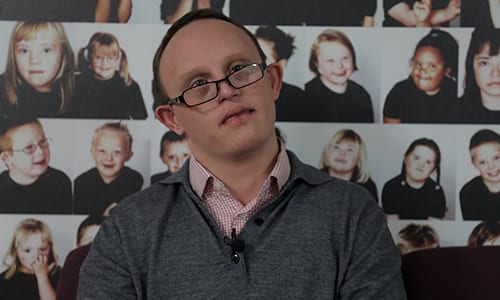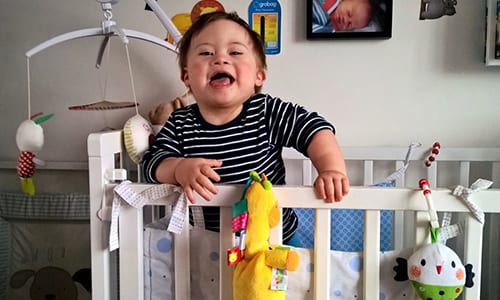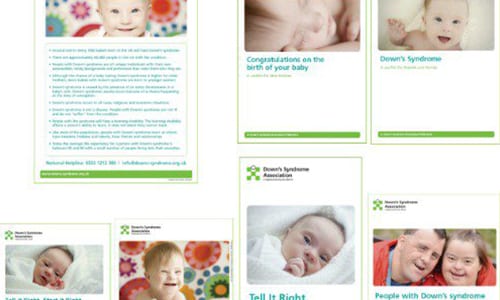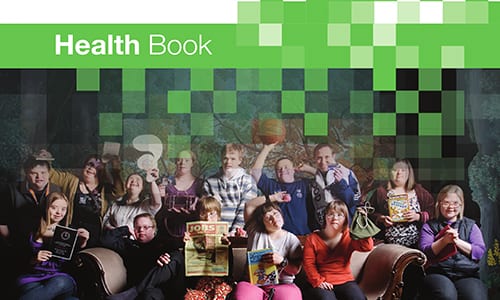Where We Stand
Our policy team works to inform and influence policies that affect people who have Down’s syndrome.
Our contact with individuals, families and carers informs our research as we influence debate, working alongside other charities, government bodies and politicians.
You can read our policy statements below.

Our Policy Statements








Down Syndrome Act

29 April 2022
The Down Syndrome Bill completed its journey through the Houses of Parliament earlier this month and received Royal Assent yesterday (28 April 2022).
We now welcome the opportunity to make a significant contribution to the guidance that is at the heart of the Act.
It is crucial that the guidance that underpins the Act reflects the varied needs of people who have Down’s syndrome. To achieve this, the Department of Health and Social Care (DHSC) needs to be as open and inclusive as possible with the consultation.
We are delighted to be participating in the DHSC consultation, and I want to reassure you that we will be consulting with all of our members to gather evidence and views, and to provide support to enable our affiliated groups and members provide their own responses to this consultation if they wish.
In addition to the Down Syndrome Act, the Government are consulting on the SEND Review, a new Health and Care Act which has recently received Royal Assent and an Independent Review of Children’s Social Care will shortly release its findings. All of this legislation will have a significant impact on the lives of people who have Down‘s syndrome and their families, and we will be sending out information soon on how members and groups can find out more and get involved in our work on these matters.
Click here to find more information and resources.
Read our previous statements on the Bill here:
Targeted Nutritional Therapy

Our position on the use of targeted nutritional intervention in the care of children who have Down’s syndrome. It has been suggested by a small number of people that young children who have Down’s syndrome may benefit from certain targeted nutritional therapy programmes.
Whilst the Down’s Syndrome Association would welcome something of proven benefit, it is concerned that some of these programmes recommend drugs that are not licensed for use in children, or in individuals who have Down’s syndrome, and also include the use of nutritional supplements in doses exceeding the maximum safe doses recommended by the Chief Medical Officer in the UK.
In 2007 we supported a large-scale, ethics committee approved UK trial of antioxidant and folinic acid supplementation for child who has Down’s syndrome – the results of which were published in the British Medical Journal on 26th Feb 2008 (Vol 336/Issue 7641).
Read the final report here: Vitamins & Minerals Research
The Down’s Syndrome Association is not in a position to recommend these therapies.
Prenatal Testing

The Down’s Syndrome Association (DSA) would not want to see a world without people who have Down’s syndrome. People who have Down’s syndrome make an enormous contribution to their families, local communities and society in general in all sorts of different ways.
We acknowledge that prenatal testing is a routine part of antenatal care and that it is a matter of individual choice as to whether to have prenatal tests or not.
At the DSA, we are committed to ensuring that all potential parents and professionals are made aware of the joys and challenges of having a child who has Down’s syndrome.
Before and during testing, easily understood and up-to-date information MUST be provided in an unbiased way by well trained professionals concerning:
- The accuracy of tests and associated risks of further tests;
- The life prospects of people who have Down’s syndrome;
- The impact on families;
- The support available in the community;
- Broad and non-directive counselling services for those who may need it.
We expect respect and support for parents making choices about antenatal tests and their outcomes – whatever they decide to do.
Engagement In The NHS

A joint statement from the Down’s Syndrome Association (DSA) and Down’s Syndrome Research Foundation (DSRF): Engagement with The NHS in producing information about Down’s syndrome
We believe it is imperative that the official information provided to pregnant women/couples about pre-natal screening is up-to-date, accurate and balanced. It is for this reason that we agreed to work with the various public health bodies in the UK with the view of making this information of the highest quality.
Our respective organisations are two of many stakeholders involved in this process. There will be differing views on what information should be included and not all stakeholders will agree. We have worked hard to ensure that the lived experience of individuals who have Down’s syndrome and their families has been reflected wherever possible. We would stress, however, that our involvement has been within certain limits and we do not have the ability to direct the format or content of the information produced. Final content is always decided by the Director of Screening, having listened to all the stakeholders involved in the process.
The Down’s Syndrome Association’s contact details will be referenced in the public information pregnant women receive and we will both continue to advocate for information produced by us (available on our websites and in our publications) to be read in conjunction with the information produced by the NHS.
Education

Getting appropriate education choices and support for children who have Down’s syndrome.
The Down’s Syndrome Association is dedicated to helping parents get access to the most appropriate education for their child who have Down’s syndrome.
To achieve this, we provide information and support for parents as well as training and materials for education professionals in both mainstream and special schools. We also campaign to create and maintain the educational choices that all children who have Down’s syndrome are entitled to. Parents should feel supported to make a choice of either mainstream or special school depending on the individual needs of their child.
Did you know…
- Down’s syndrome is the most common single cause of learning disability.
- Most children who have Down’s syndrome now attend a mainstream primary school.
- Increasingly, children included at primary school will remain with their classmates and move on to a mainstream secondary school.
- Good quality further education provides a platform for further personal development.
Healthcare

The Down’s Syndrome Association believe that all people who have Down’s syndrome should get the health care they need as individuals.
We continue to campaign for better health care in the UK for people who have Down’s syndrome.
We are currently working together with an international team of medical experts on guidelines to support the health of people who have Down’s syndrome, by creating evidence-based clinical guidelines for specific medical issues which greatly impact this population. We will campaign to have these guidelines accepted by the World Health Organisation (WHO) which will then make them mandatory in the UK as well as round the world.
We are updating the information available to health professionals and have recently developed a forum specifically for health care professionals to talk to us and others with expertise in Down’s syndrome to share good practice and ask questions.
Families and carers will find lots of support and information on health and well-being online. We also have a section for GPs that contains information about health conditions that are more common in people who have Down’s syndrome. You may also find our information sheet Eliciting a Case History useful.
Please refer to the following website for health care information specifically for people who have Down’s syndrome – Down’s syndrome Medical Interest Group Website.
Justice

A number of families have contacted the DSA to highlight situations involving the justice system whereby their family member who have Down’s syndrome has been called upon to provide evidence.
Everyone who have Down’s syndrome who comes into contact with the justice system should be considered a Vulnerable Witness. There are clear procedures that must be followed if someone is a Vulnerable Witness; the procedures are referred to as Special Measures. The guidance published by the Ministry of Justice is “Achieving Best Evidence in Criminal Proceedings: Guidance on interviewing victims and witnesses, and guidance on using special measures“.
We are concerned that a common experience among these families is that of the person who have Down’s syndrome not being considered a reliable witness. We would like to emphasise that each case should be treated individually and on its own merits avoiding any preconceived assumptions about people who have Down’s syndrome and their capacity as witnesses.
We will monitor the situation and provide support and information to families who contact us for advice. We continue to strive for equality of access to all areas of society for people who have Down’s syndrome.
Abortion Act 1967

The Abortion Act 1967 (as amended by the Human Fertilisation and Embryology Act 1990) states that an abortion after 24 weeks is legal if it is performed by a registered medical practitioner (a doctor), and that it is authorised by two doctors, acting in good faith, on one (or more) of the following grounds (with each needing to agree that at least one and the same ground is met):
- that the termination is necessary to prevent grave permanent injury to the physical or mental health of the pregnant woman; or
- that the continuance of the pregnancy would involve risk to the life of the pregnant woman, greater than if the pregnancy were terminated; or
- that there is a substantial risk that if the child were born it would suffer from such physical or mental abnormalities as to be seriously handicapped.
The third ground means that if it is found that a foetus has Down’s syndrome, the pregnancy may be terminated after 24 weeks.
The Down’s Syndrome Association (DSA) believes that the 1967 Abortion Act (as amended by the Human Fertilisation and Embryology Act 1990) needs to be properly reviewed in light of the advances in medical science and testing options now available. The DSA would like to see sufficient time given by Parliament for the consideration of all evidence relevant to this important debate.
At the DSA, we are aware that decisions about termination are made for different reasons and for a range of complex conditions. Only those involved are aware of the details of what will be an individual and highly personal decision, one which cannot be taken lightly. People must have the relevant information to enable them to make an informed choice and the law must reflect the medical science available.
